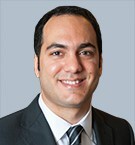Our research
The gastrointestinal (GI) epidemiology group focus on research on GI organs and diseases. Most of that research is based on the ESPRESSO study, which you can read more about on a separate tab on this page. Through histopathology data we are able to examine a range conditions, including cancer precursors, the brain-gut axis, disease phenotypes, etc. Our research has been published in journals such as the New Engl J Medicine, Lancet, JAMA, the BMJ, Annals of Internal Medicine, Gastroenterology and Gut.






